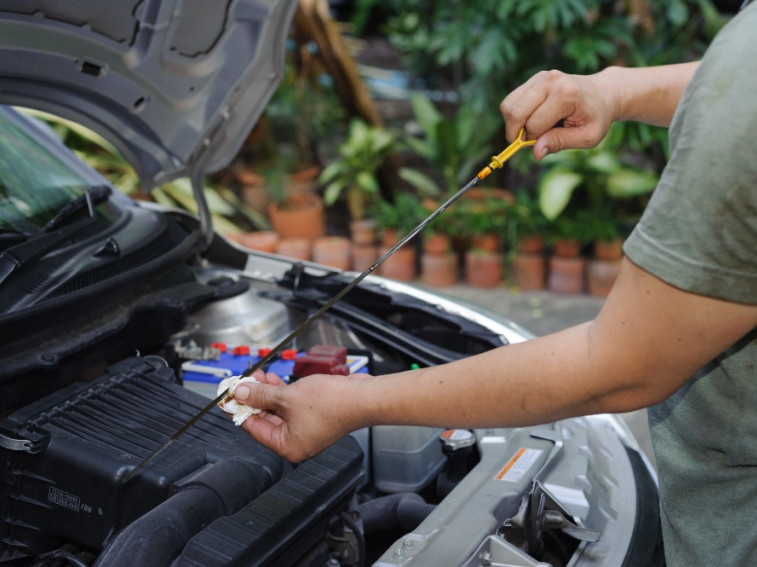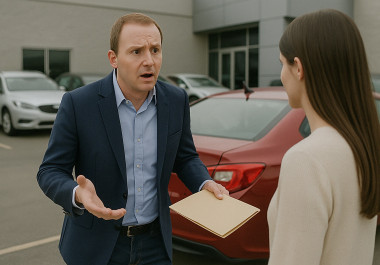The nationwide lockdown of Spring 2020 resulted in a dramatic drop in the amount of traffic on the roads, as almost all movement stopped and cars stayed parked up at home. As many drivers discovered though, that doesn’t mean you can start to ignore the basics of car maintenance - on the contrary, in many ways it becomes more important than ever!
While the nation may be getting moving again, keeping a car maintained when it’s off the roads remains a key priority for not just professional mechanics, but for anyone who parks up their car for extended periods of weeks or even months at a time - whether that’s because it’s undergoing repairs, or it’s simply under the effect of a Statutory Off Road Notice, or SORN.
Whatever the reason for keeping your own car off the roads, there are a couple of things it’s worth doing:
- Regularly top up your fuel - as this prevents condensation build-up that can cause your car to stall
- Regularly clean your car - as this cuts down on the risk of damage from any lingering rust
- Take the handbrake off (if safe to do so) - it can sometimes become seized if left unused for long enough
However long you’re planning on keeping it parked up for, the general advice is to start it up once a week, and let it run for about ten or fifteen minutes. This gives the battery time to increase its charge, while also circulating oil and fuel around the engine (which helps to prevent engine flooding in petrol cars).
As well as these, there are a couple of other considerations you should bear in mind - we’ve listed the most important ones below!
Consider where you’ll leave your car
If you can store your car in a garage, ideally you should. It’s more secure, and can better protect it from the elements than if it’s parked out on the street. Moss, dirt, bird droppings and rain and rust are the worst offenders. If you do have a garage, make sure to clean it before storing it, to prevent any lingering rust from leaving its mark on the paintwork.
You may also want to leave one of the windows slightly open, to prevent serious mould from forming in the interior. There’s a trade-off though - insects or small rodents can sometimes use the opening to make their way inside, and take up residence in the car. Make sure to check it regularly just in case, especially since rodents are known to chew through vital components like wiring looms!
Of course, not everyone will have the available garage space, especially if you’re a mechanic who needs to use the space for cars you’re actively working on. In that case, it’s a good idea to try and park it in a well-lit space, and one that’s within view of your windows if possible - just in case!
Keeping your battery charged
When your car is left parked up for long periods of time, one of the first components to feel the sting is your battery. You may already be aware of the sweeping wave of breakdowns dealt with by companies like the AA and RAC, after thousands of motorists turned their cars back on post-lockdown to find that their batteries were stone dead. Essentially, this is because when your car is in motion, its alternator charges up the battery. If the car isn’t driven for a long time, the battery goes without this charge and slowly drains of energy, leaving the car immobile when it’s finally turned on.
It’s also worth noting that batteries are particularly prone to losing their charge in chillier weather (so we suppose there was a silver lining to the most severe lockdown measures being imposed in the warmer months!).
So, how do you prevent this from happening? Well, if you can, driving the car occasionally for ten or fifteen minutes can help keep a residual amount of charge in the battery, helping to avoid the dead battery scenario when you take it back out onto the roads full time. If you’re a mechanic on the other hand, you might want to invest in a trickle charger - it’ll save you a lot of hassle in the long run!

Bear your brakes and tyres in mind
Right after your battery, your brakes and tyres are the next most important component - mainly because of their effect on safety. Whether you’re leaving your car in the street or in a garage, ideally you’ll want it on flat ground with the handbrake off. This is because brake discs corrode relatively quickly when they’re not in use, and this can sometimes lead to your handbrake seizing up in the interim (as we’ve touched on above).
Wheel chocks can stop the car from rolling away, but if you’ve got axle stands handy then it’s a good idea to keep the car raised off the ground - as this will stop flat spots from developing in the tyres. Obviously, if you’re parked on a slope very little of that will apply - you’ll need to use the handbrake whatever the case. Seizing brakes are one thing, but the risk of your car rolling away is far more dangerous!
Oil, coolant and fuel
If your car won’t be driven for a few months, it’s a good plan to change the engine oil just before you store it away. This is largely due to the chemicals in the oil, which have the potential to wreak havoc on other internals. If you do end up changing the oil, don’t forget to start the car periodically over the time you’ve got it stored away. This is important because it essentially allows the fluids to circulate around the engine, so your car can enjoy the full benefit.
And contrary to what you might expect going from post-apocalyptic TV and films like the Walking Dead or Mad Max, fuel very much has a use-by date. That means it can (and will) ‘go bad’ if your car is left sitting for too long, and you’ll definitely know it when it comes to use the car again.
Filling up your tank to the brim can prevent any undesirable air build-ups in your engine, and prolong its operational life. You might also want to think about a fuel stabiliser, which can keep things ticking over for up to a year or so. When it comes to use the car again, don’t forget to give the fuel lines and seals one last check, to make sure they’re in a serviceable enough condition.

A few final tips
As well as other the practicalities of keeping the car in check, it’s also a good plan to bear in mind the security of any car that’s left sitting too long - especially if it’s in a publicly accessible place. Again, it should be a well lit place if you’ve got access to one, and a simple steering lock can work wonders in terms of a deterrent. Mechanics’ yards are in many ways less of an immediate concern, as you’ve probably invested in decent enough security for your premises already, but it’s wise to review these systems regularly.
If it’s a newer model of car, there’s a decent chance that it has a keyless entry system, which is vulnerable to certain sophisticated techniques and equipment sometimes employed by thieves. Thankfully, it’s easy to circumvent them - just make sure you keep the keys in a Faraday pouch, and well away from doors and windows. Thieves can bounce the signal from short range to unlock the car, but if the keys are far enough away then it’s far more difficult for them to attempt this successfully.
Finally, don’t forget to keep up to date with your documents - if the car is untaxed or insured and you’ve not formally declared it off the road, then you can still be fined. If you know for a fact that the car will be off the road for a few months, it might be worth getting a Statutory Off Road Notice, or SORN. The catch is that if you do that, then you can’t drive the car at all, not even in the name of maintenance like we’ve outlined above. Make sure you know what you’re signing up for!
And if you’re looking at ultimately selling your car - either for a personal replacement, or if you’re buying another one to fix up and sell on - then we’ve got a huge range of used, seized and salvage cars for sale right here at RAW2K. We’ve got a wide range of choice from leading manufacturers like Peugeot, Volkswagen and Toyota. Why not take a look around, and see what you can find?




